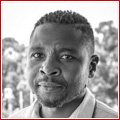Posted: 10 May, 2024 | Author: AfricLaw | Filed under: Justin Monyping Ater | Tags: children’s right to education, children’s rights, climate change, climate change solutions, climate related deaths, climate resilient classrooms, closing of schools, heatwaves, human rights, South Sudan, South Sudan’s Constitution and Child Act 2008, sustainable strategies, United Nations Convention on the Rights of the Child |
 Author: Justin Monyping Ater
Author: Justin Monyping Ater
Law lecturer, School of Law, University of Juba, South Sudan
Introduction
South Sudan is increasingly becoming extremely vulnerable to climate change events such as excessive climate-induced heatwaves. Evidence suggests that this may be because the country falls under the category of the least developed Countries (LDC). These countries bear a greater burden of climate change’s adverse consequences than developed countries, yet they emit less greenhouse gases. This is because LDCs lack resources and the capacity to mitigate and adapt to climate change. The rationale also applies within a country. Each state has communities and individuals who are disproportionately vulnerable to climate change and its effects. For instance, as of 14, 15, and 16 March 2024, South Sudan’s government made considerable press releases spotlighting the disproportionate impacts of heatwaves on vulnerable groups such as children. This resulted in, for example, climate related deaths and consequently closing and re-opening of schools without strategies to keep the schools open and avoid the perpetual violation of children’s right to education. In light of this, it is argued that the government’s response of closing down schools was unsustainable. To avoid future interruption to learning, the government should adopt sustainable strategies such as the construction of climate resilient classrooms. However, in the meantime, children should be educated about climate change and its consequences to make them climate resilient. Following this introduction, the article discusses South Sudan’s obligation under international and national frameworks that provide basis for initiating and developing durable strategies to curb climate change and thereby protect children’s right to education.
Read the rest of this entry »
Posted: 8 May, 2024 | Author: AfricLaw | Filed under: Azwi Netshikulwe, Tsholofelo Nakedi | Tags: African migrants, anti-migrant sentiments, apartheid politics, Corporate Social Responsibilities, electoral advantage, false narratives, hate speech, illegal migration, misinformation, regional instability, South Africa, violence, xenophobia |
 |
Author: Azwi Netshikulwe
Researcher – Migration for Development, University of Cape Town |
 |
Author: Tsholofelo Nakedi
Community Advocacy Specialist, CSVR |
In recent years, the election period in South Africa has been a sensitive time, and it has, in some instances, exacerbated issues related to xenophobia and negatively impacted social cohesion within communities. This takes place within the context of a country like South Africa that has struggled with a culture of violence, which has its historical roots stemming from colonial and apartheid politics of divide and rule. Consequently, issues related to identity, race, and nationality often surface during election periods, leading to tensions and potential outbreaks of xenophobia. For example, political parties sometimes use divisive language and scapegoating tactics to rally their base and gain electoral advantage. In most cases, this political discourse includes blaming foreigners for unemployment, crime, or other social problems, which can stoke xenophobic sentiments among the South African populace. This is exemplified by the use of xenophobic rhetoric in certain party manifestos, where leaders prioritise addressing illegal migration.
Read the rest of this entry »
Posted: 29 April, 2024 | Author: AfricLaw | Filed under: William Aseka | Tags: depression, evil spiritual forces, Father John Pesa, Kenya, mental disability, mental health, national disaster, Pastor Paul Mackenzie, prayer camps, Private Pentecostal churches, Prophet Owour, pyschosocial disabilities, religious retreats, Shakahola Massacre, violation of the rights, witchcraft |
 Author: William Aseka
Author: William Aseka
Human Rights Lawyer
In Kenya, popular beliefs associate mental disability with paranormal phenomena or spiritual manifestations. Prayer camps set up by pastors offer care to mentally disabled people and their families. In these camps, as it will be discussed in detail in this article the “care” provided is not appropriate in terms of the standards and protocols of mental health services. According to a World Health Organisation report, in 2017, Kenya was ranked fifth among African countries with elevated cases of depression. The study found that at least two million people suffer from depression. In addition, Kenya has one general hospital (Mathari National Teaching and Referral Hospital) and 14 psychiatric units in general hospitals capable of treating mental health conditions. It is also estimated that Kenya has about 116 psychiatrists for a population of about 50 million. This translates to one psychiatrist serving at least 400,000 people with mental disabilities.
Read the rest of this entry »
Posted: 25 April, 2024 | Author: AfricLaw | Filed under: Mark Deng | Tags: 2024 election, civil war, communal conflicts, deadly violence, democratic right, epidemic of insecurity, incidents of violence, outbreak of violence, population census, President Mayardit, revitalised agreement, South Sudan, Transitional Period, Unification of forces |
 Author: Mark Deng
Author: Mark Deng
McKenzie Postdoctoral Research Fellow, University of Melbourne, Australia
In my recent article, I discussed how President Salva Kiir Mayardit has vowed to hold the first election in South Sudan in 2024. In this article, I argue that he shouldn’t run in the election. I provide 3 compelling reasons to justify my argument: President Mayardit’s overstay in power, the need for the country to heal without him in power, and his apparent poor health.
Read the rest of this entry »
Posted: 22 April, 2024 | Author: AfricLaw | Filed under: Joris Joël Fomba Tala | Tags: conflict, gender-based violence, human rights, International Covenant on Civil and Political Rights, International Humanitarian Law, rape, Rapid Support Forces, refugee women, reproductive health, Sexual and gender-violence, sexual violence, socio-economic development, Sudan, Sudanese conflict, torture, United Nations Convention against Torture and Other Cruel and Degrading Treatment or Punishment, women’s rights |
 Author: Joris Joël Fomba Tala
Author: Joris Joël Fomba Tala
Researcher, Centre for International and Community Law
Introduction
The conflict that broke out in Sudan (Republic of Sudan) on 15 April 2023 between two rival military factions has had disastrous consequences for women. Dubbed the “war of the generals”, the conflict pits Sudan’s armed forces against the Rapid Support Forces (RSF). In its 2024 report, UNFPA said it was very concerned about the escalation of cases of gender-based violence in the Sudanese conflict. This particularly alarming against the background of an already dire situation of women’s rights in Sudan before the outbreak of hostilities, as the Special Rapporteur on violence against women reported about Sudan in 2016. Almost a year after, the fighting continues in the main cities of Sudan, but the fact remains that Sudan still has no functioning government. UN Women says it is “shocked and condemns reports of increasing gender-based violence in Sudan, including conflict-related sexual violence against women and displaced and refugee women”. In the same vein, UN Women Africa expressed its deep concern about the serious consequences of the Sudanese conflict on women and girls and called for immediate action against the violence they face. However, in a context of armed confrontation, it is undeniable that both parties do not respect international legal standards and commit serious violations against women and girls. This article discusses the application of the relevant legal rules for the protection of women applicable to the Sudanese conflict. The first section will identify these rules. The article will then analyse the various forms of sexual and gender-based violence prevailing against women and finally make proposals for better protection of women in the Sudanese conflict.
Read the rest of this entry »
Posted: 18 April, 2024 | Author: AfricLaw | Filed under: Henok Wolka Worsiso | Tags: Alternative Punishment Methods, community service, compulsory labour, Criminal Code of Ethiopia, economic impact, Ethiopian justice system, financial burden, High incarceration rates, International Covenant on Civil and Political Rights, less serious crimes, low-level crimes, Prison Overcrowding, probation, rehabilitation, social welfare, Stepping Away from Traditional Sentencing: Exploring Alternative Punishment Methods in Ethiopia to Reduce Prison Overcrowding, Tokyo Rules, United Nations Standard Minimum Rules for Non-custodial Measures |
 Author: Henok Wolka Worsiso
Author: Henok Wolka Worsiso
Senior Human Rights Officer at the Ethiopian Human Rights Commission.
Introduction
The Ethiopian justice system has long been confronted with a multitude of challenges, including issues such as prison overcrowding, limited resources, and a lack of focus on rehabilitation. Traditional sentencing methods, which predominantly rely on punitive measures, have proven to be inefficient in addressing the root causes of crime especially in case of less serious crimes. Thus, exploring alternative punishment methods has emerged as a potential solution to alleviate these concerns and promote a more just and rehabilitative approach. According to United Nations Standard Minimum Rules for Non-custodial Measures (the Tokyo Rules) there are several non-custodial or alternative punishments available as alternatives to imprisonment. In this paper attention is paid to the two alternative punishments specifically: community service and probation.
Read the rest of this entry »
Posted: 15 April, 2024 | Author: AfricLaw | Filed under: Adiam Zemenfes Tsighe | Tags: advancement of children’s rights, African Charter on the Rights and Welfare of the Child, children’s rights, concluding observations, follow-up visits, National Human Rights Institutions, periodic reports, recommendations, State Party reporting |
 Author: Adiam Zemenfes Tsighe
Author: Adiam Zemenfes Tsighe
Technical Expert, African Committee of Experts on the Rights and Welfare of the Child (ACERWC).
Adopted in 1990 by the then Organisation of African Unity (OAU), the African Charter on the Rights and Welfare of the Child (the Charter), as of March 2024, has been ratified by 50 Member States of the African Union; Morocco, Saharawi Arab Republic, Somalia, South Sudan, and Tunisia are yet to ratify. Pursuant to article 43 of the Charter, Countries that have ratified the Charter are required to submit reports on the status of the implementation of the provisions of the Charter two years after ratification and every three years thereafter. The African Committee of Experts on the Rights and Welfare of the Child (ACERWC/Committee), established under article 32 of the Charter, assumes the mandate to receive and consider such reports. As of February 2024, 42 State Parties have reported to the Committee at least once while 8 State Parties have not submitted any report namely, Cape Verde, Central African Republic, Democratic Republic of Congo, Equatorial Guinea, Gambia, Libya, Mauritius, and Sao Tome and Principe. Among the 42 State Parties that have reported, 23 of them have submitted periodic reports of which 6 State Parties have submitted their second periodic reports. These 6 Countries are Burkina Faso, Kenya, Niger, Rwanda, Senegal, and South Africa. Rwanda has the highest number of reports by submitting its third periodic report to the Committee.
Read the rest of this entry »
Posted: 11 April, 2024 | Author: AfricLaw | Filed under: Nimrod Muhumuza | Tags: constitutional principles, democracy, equality, homosexuality, human dignity, LGBTQ community, LGBTQ persons, mental health, right to health, right to housing, sexual orientation, social justice, Uganda, Uganda Constitutional Court |
 Author: Nimrod Muhumuza
Author: Nimrod Muhumuza
Doctoral researcher
Introduction
Stories about “trials by ordeal” abound in Africa and worldwide. In some parts of the continent, these “trials” still exist – with predictably unjust and sometimes fatal results. Trials by ordeal are capricious and unscientific, and the overall system is poor in evaluating evidence, reasoning, and arguments and arriving at a solid judgment. Today, we have a system of courts that is supposed to bring a certain sobriety, meticulousness, reasoning, and coherent judicial philosophy that rises above the occasional hot-headedness of the legislature or the overzealousness of the executive. Regularly, the system works as it should. Other times, it does not. Careful and solid judicial reasoning can still lead to a regressive and disputed decision, and a progressive ruling may come from poor and shaky rationale. Sometimes, a regressive decision may be founded on porous, incoherent, contradictory reasoning, as illustrated by the Uganda Constitutional Court’s (Con-Court) decision on the constitutionality of the Anti-Homosexuality Act, 2023 (AHA), delivered on 3 April 2024.
Read the rest of this entry »
Posted: 8 April, 2024 | Author: AfricLaw | Filed under: Nyasha Mcbride Mpani, Uncategorized | Tags: African Union's Charter on Democracy, and Governance, authoritarian regimes, changes to the constitution, constitutional change, coups, decline in democracy, democracy, discrimination, elections, fragile region, human rights abuses, pervasive corruption, restrictions on press freedom, security, Senegal, stability, Togo |
Author: Nyasha Mcbride Mpani
Southern African project leader, Data for Governance Alliance
A few hours after 44-year-old Senegal’s President-elect Diomaye won the hotly contested elections, which had seemed impossible due to outgoing President Macky Sall’s attempt to tamper with the constitution and defer elections to November 2024, a sense of relief swept through Senegal and the region. The elections brought a sigh of relief to a region struggling with a decline in democracy, marked by excessive executive power and a rise in popular coups. His victory comes at a crucial moment and is seen as an opportunity to strengthen democracy not only in Senegal but also in West Africa. Senegal’s return as Africa’s and West Africa’s poster child for democracy is hoped for, as the region has witnessed democratic backsliding over the past years. This regression has been characterised by pervasive corruption, authoritarian regimes, restrictions on press freedom, human rights abuses, discrimination against minorities, and economic downturns, eroding public trust.
Read the rest of this entry »
Posted: 4 April, 2024 | Author: AfricLaw | Filed under: Mark Deng | Tags: 2024 election, arms proliferation, civil war, communal conflicts, deadly violence, democratic right, epidemic of insecurity, incidents of violence, outbreak of violence, population census, revitalised agreement, South Sudan, Transitional Period, Unification of forces |
 Author: Mark Deng
Author: Mark Deng
McKenzie Postdoctoral Research Fellow, University of Melbourne, Australia
South Sudan was supposed to hold its first election as an independent country in 2015. However, a civil war erupted in 2013 that threw the country into a deep state of insecurity, inevitably altering the government’s priorities. Restoring peace urgently became the focus for the government.
The government and other parties to the war signed the revitalised agreement in 2018, paving the way for the establishment of the current unity government at the beginning of 2020. The unity government was given a 3-year tenure – the transitional period. This was extended in 2022 for 2 more years to give the parties enough time to resolve critical issues outstanding in the revitalised agreement.
Read the rest of this entry »
 Author: Mark Deng
Author: Mark Deng Author: Joris Joël Fomba Tala
Author: Joris Joël Fomba Tala Author: Adiam Zemenfes Tsighe
Author: Adiam Zemenfes Tsighe Author: Mark Deng
Author: Mark Deng
 Author: Justin Monyping Ater
Author: Justin Monyping Ater


 Author: Henok Wolka Worsiso
Author: Henok Wolka Worsiso Author: Nimrod Muhumuza
Author: Nimrod Muhumuza